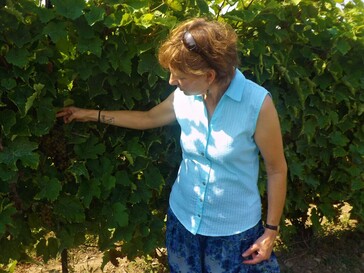(PROSE POEM)
KEY CHANGES
MEG FREER
KEY CHANGES
MEG FREER
Left ear for facts, right ear for creative fancy, it is said. At the edge of the woodland are balsam and clover, sage and lavender, and ginger-coloured bees who buzz in the key of A. In the deep of the marshland, low B-flat inhabits the air. Alligators bellow, angry flies buzz in the key of F.
But what key is best for wondering over worries, wants and desires, listening in vain for mercy’s echo? What key for nights tied up with confusion and talk full of wonders, when what-if’s spill over into resolve—or resignation—and sleep won’t come when called?
Tired bees buzz in a different key. Fact or fancy? Left behind in the wake of key changes: a tired, over-wounded heart, a pessimistic major chord, an apology stained with compromise, and the delicious bruise of experience.

About this work, Meg said: "This poem comes out of my reading about both music and the natural world. Beekeepers know from the pitch of the buzzing when bees are tired, and habitat disturbances mean bees have to travel longer distances. Different musical keys evoke different emotions, and our brain processes information differently depending to which ear the words are directed."
Meg Freer grew up in Montana and lives in Ontario. Her photos and poems have won awards and have been published in chapbooks, anthologies and journals such as NatureWriting and Mothers Always Write. In 2017 she won a fellowship and attended the Summer Literary Seminars in Tbilisi.